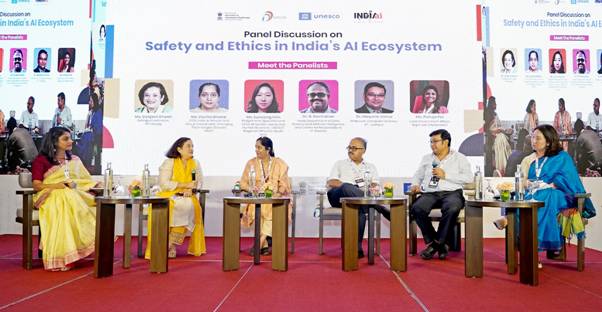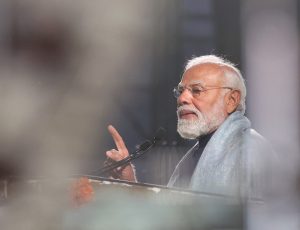India Advances Responsible AI with UNESCO-MeitY Stakeholder Meet

Photo Credit: PIB
India took another major step toward building a robust and responsible artificial intelligence (AI) ecosystem with the successful hosting of the 5th and final Stakeholder Consultation on AI Readiness Assessment Methodology (RAM).
The consultation was jointly organised by the UNESCO Regional Office for South Asia and the Ministry of Electronics and Information Technology (MeitY), under the IndiaAI Mission, with Ikigai Law as the implementation partner.
This event concluded a series of five high-level stakeholder discussions held across India in cities such as Bengaluru, Hyderabad, Guwahati, and earlier in New Delhi. The consultations aim to develop a comprehensive, India-specific AI policy framework that promotes ethical, safe, and inclusive AI practices across sectors. The AI RAM serves as a diagnostic tool to evaluate a country’s readiness for AI by examining its legal, social, economic, and technological foundations.
Over 200 experts from government, academia, civil society, and industry participated in the consultation. The session opened with remarks from Mr. Tim Curtis, Director, UNESCO South Asia Office, who emphasized adopting an “ethics-by-design” approach for AI and reiterated UNESCO’s support for India’s inclusive AI development goals. Mr. Abhishek Singh, Additional Secretary, MeitY, and CEO of the IndiaAI Mission, delivered the keynote address. He highlighted India’s goal to build AI for India by focusing on innovation, safety, and trust. Singh also showcased initiatives like AI Kosh, the development of indigenous foundation models, and efforts under the Safe and Trusted AI pillar.
A panel discussion featuring thought leaders such as Ms. Debjani Ghosh (NITI Aayog), Ms. Kavita Bhatia (IndiaAI Mission), Ms. Eunsong Kim (UNESCO), Dr. B. Ravindran (IIT Madras), and Dr. Mayank Vatsa (IIT Jodhpur) focused on the evolving AI policy landscape in India. They stressed the need to balance AI innovation with ethical considerations, and the importance of industry, academia, and government partnerships in shaping AI governance.
Breakout sessions followed, allowing stakeholders to engage in focused dialogues on AI governance, digital infrastructure, workforce readiness, and sector-specific adoption. A dedicated session also explored how India can ensure youth engagement in AI policy and innovation.
The RAM approach includes both qualitative and quantitative measures to evaluate multiple dimensions of a country’s AI ecosystem. Its flexible design allows it to be customized to local needs and implemented by independent research bodies in collaboration with stakeholders from across society.
This consultation reinforces India’s commitment to UNESCO’s global vision of inclusive, ethical, and sustainable AI. MeitY and UNESCO aim to translate these ideas into practical, actionable policies that reflect India’s aspirations as a global AI leader.
Source: PIB




